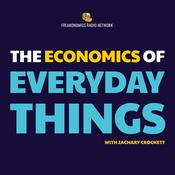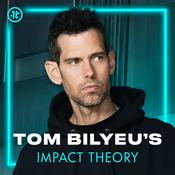25 episodes

Busting myths around Indigenous entrepreneurship
08/9/2025 | 39 mins.
Indigenous entrepreneurship has existed across Turtle Island long before settler colonization. But today, there are still so many myths about Indigenous businesses — including the idea that Indigenous people aren’t entrepreneurs, that they rely on government handouts, and that they need to be taught how to build successful businesses. None of that is true. In fact, Indigenous entrepreneurship is thriving — and it’s rooted in long-standing traditions of innovation, sustainability, and community care. In this episode, we bust those myths and explore how Indigenous ways of doing business can challenge — and improve — how we all think about entrepreneurship. GATE’s Busted podcast is made possible by generous support from BMO. Featured guests: Dr. Jordyn Hrenyk, Postdoctoral Research Fellow, Institute for Gender and the Economy, Rotman School of Management Sara Wolfe, Executive-in-Residence, Rotman School of Management and Institute for Gender and the Economy; Senior Fellow, Massey College; External Director, Wilson College for Leadership and Civic Engagement, McMaster University Produced by: Carmina Ravanera and Dr. Sonia Kang Edited by: Ian Gormely

Myth: Philanthropy belongs to rich, white men
07/7/2025 | 35 mins.
When most people think about philanthropy, they picture rich, often white, men, writing huge cheques for whatever cause they decide to get behind. And billionaire philanthropy has faced growing criticism: is it really philanthropy, or is it just a sneaky way for the wealthy to avoid taxes and reinforce inequality? But this perspective leaves out a much broader, richer history – one where women, members of racialized communities, LGBTQ+ folks, and others have long used the power of voluntary giving to contribute to the public good and drive important social change. In this episode, we speak to researchers who are challenging the dominant narrative, expanding our understanding of who gives, why they give, and how philanthropy has always belonged to more than just a select few. Further research:Ackerman, J., Han, X., and Osili, U. (2024) Women Give 2024. Indiana University Lilly Family School of Philanthropy. https://scholarworks.indianapolis.iu.edu/items/b1a60723-37d9-41da-9556-4505270d9c8f Dale, E.J., Ackerman, J., Mesch, D.J., Osili, U.O. and Garcia, S. (2017). Giving to Women and Girls: An Emerging Area of Philanthropy. https://doi.org/10.1177/0899764017744674Rumble, T. and Numata, Y. (2023). Prioritizing restitution, Indigenous leadership, and the future with ‘restorative philanthropy’. The Philanthropist Journal. https://thephilanthropist.ca/2025/03/prioritizing-restitution-indigenous-leadership-and-the-future-with-restorative-philanthropy/ GATE’s Busted podcast is made possible by generous support from BMO. Featured Guests: Jacqueline Ackerman, Director, Women's Philanthropy Institute, Indiana University IndianapolisDr. Elizabeth J. Dale, Frey Foundation Chair for Family Philanthropy, Grand Valley State UniversityProduced by: Carmina Ravanera and Dr. Sonia Kang Edited by: Ian Gormely

Myth: Care work is low value
09/6/2025 | 28 mins.
During the COVID-19 pandemic, we got a sense of how devalued care work really is. Care workers were, and still are, working long hours in poor conditions, for low pay, to support elders, children, and people with disabilities. These care workers provide some of the most essential labour in our society, but their work is often overlooked. We rarely stop to think about how much we rely on care, and how everything would fall apart without it. That neglect has consequences: care workers have been leaving the sector, and we’re now facing a global care crisis, with not nearly enough carers to support everyone who needs care. In this episode, we’ll be busting the myth that care work is low value, and talk about what it would look like if society recognized that our communities and economies are built on and sustained by care. Further research:Prentice, S. & Armstrong, P. (2021, May 25). We must eliminate profit-making from child care and elder care. The Conversation. https://theconversation.com/we-must-eliminate-profit-making-from-child-care-and-elder-care-159407 Thomas, C., & Lightman, N. (2022). “Island Girls”: Caribbean Women Care Workers in Canada. Canadian Ethnic Studies 54(1), 29-58. https://dx.doi.org/10.1353/ces.2022.0004.GATE’s Busted podcast is made possible by generous support from BMO. Featured Guests: Dr. Susan Prentice, Duff Roblin Professor of Government and Professor of Sociology, University of Manitoba Dr. Carieta Thomas, Assistant Professor of Sociology, Carleton University Produced by: Carmina Ravanera and Dr. Sonia Kang Edited by: Ian Gormely

Myth: The tradwife movement empowers women by affirming traditional gender roles
12/5/2025 | 39 mins.
If you’ve been on social media lately, you might have seen some content about the tradwife movement and from tradwives themselves. Popular tradwife accounts post photos and videos of an idealized domestic lifestyle – taking care of children, cooking from scratch, baking bread, and keeping a clean and organized house – often with a feminine aesthetic that harkens back to the 1950s. They make beautiful content that showcases the value of “traditionally” gendered households, where men are the bread-winners and women are the bread-makers. It might be easy to think that this movement is simply about empowering women to return to tradition. But, when you dig deeper, there’s much more to the story. In this episode, we speak with researchers to unpack the tradwife movement, what it does, and who it really benefits. GATE’s Busted podcast is made possible by generous support from BMO. Further research: Bower, L.J. (2024). The thorn in feminism’s side: black feminist reconceptualization and defence of #tradwives and the #tradwife movement. Journal of Gender Studies, 1-17. https://doi.org/10.1080/09589236.2024.2423198 Proctor, D. (2022). The# tradwife persona and the rise of radicalized white domesticity. Persona Studies 8(2), 7-26. https://search.informit.org/doi/pdf/10.3316/informit.873023567302359 Featured Guests: Dr. Laura Jane Bower, Lecturer in Criminology, Edinburgh Napier University Dr. Devin Proctor, Assistant Professor of Anthropology, Elon University Produced by: Carmina Ravanera and Dr. Sonia Kang Edited by: Ian Gormely

Myth: The business case for diversity is effective in creating equality
07/4/2025 | 31 mins.
When we talk about an organization’s “case” for diversity, we’re talking about the set of justifications or reasons it gives for why diversity is an important organizational value. A common case that organizations make for promoting DEI is the business case for diversity: the idea that diversity is important because it boosts an organization’s bottom line. The business case seems harmless, or maybe even helpful, but research has found that using it to advocate for equality could, in some cases, be doing more harm than good. This episode debunks the myth that the business case for diversity is effective for creating equality for marginalized groups. GATE’s Busted podcast is made possible by generous support from BMO. Further research:Georgeac, O.A.M. & Rattan, A. (2023). The business case for diversity backfires: Detrimental effects of organizations' instrumental diversity rhetoric for underrepresented group members' sense of belonging. Journal of Personality and Social Psychology. https://www.apa.org/pubs/journals/releases/psp-pspi0000394.pdfSaha, A. & van Lente, S. (2022). Diversity, media and racial capitalism: a case study on publishing. Ethnic and Racial Studies 45(16). https://www.tandfonline.com/doi/full/10.1080/01419870.2022.2032250Featured Guests: Dr. Oriane Georgeac, Assistant Professor of Management and Organizations, Boston University Dr. Anamik Saha, Professor of Race and Media, University of Leeds Produced by: Carmina Ravanera and Dr. Sonia Kang Edited by: Ian Gormely
More Business podcasts
Trending Business podcasts
About Busted
Listen to Busted, The Tim Ferriss Show and many other podcasts from around the world with the radio.net app

Get the free radio.net app
- Stations and podcasts to bookmark
- Stream via Wi-Fi or Bluetooth
- Supports Carplay & Android Auto
- Many other app features
Get the free radio.net app
- Stations and podcasts to bookmark
- Stream via Wi-Fi or Bluetooth
- Supports Carplay & Android Auto
- Many other app features


Busted
download the app,
start listening.
































